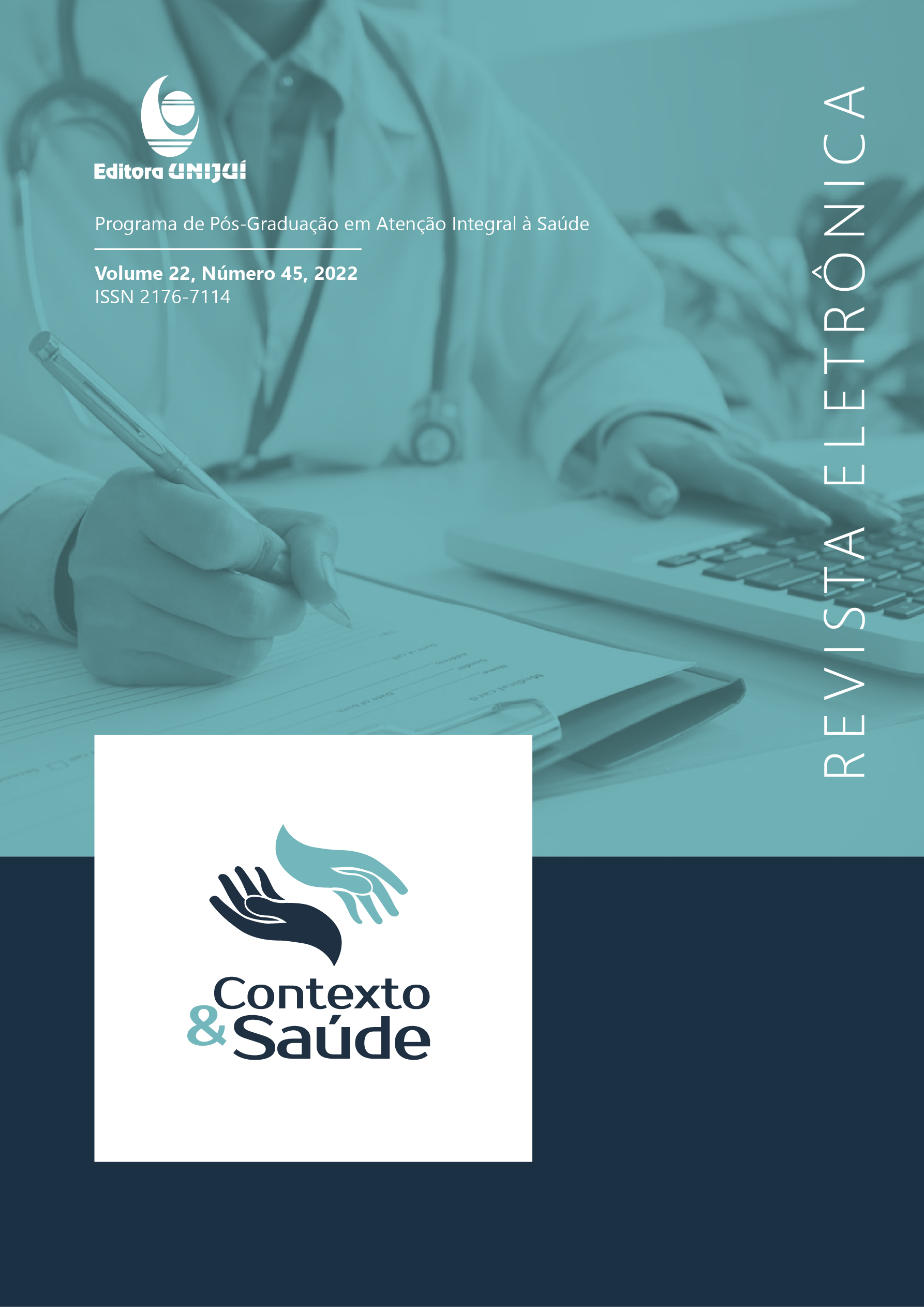Sintomas depressivos entre idosos internados aumentam a chance de mortalidade após a alta hospitalar
DOI:
https://doi.org/10.21527/2176-7114.2022.45.10107Palavras-chave:
idoso, saúde do idoso, transtornos mentaisResumo
Este estudo teve o objetivo de estimar a prevalência de sintomas depressivos em uma amostra de idosos hospitalizados, bem como a sua relação com o prognóstico do paciente 90 e 180 dias após a alta hospitalar. Trata-se de um estudo transversal, realizado com 213 idosos internados em um hospital geral-secundário da zona sul da cidade de São Paulo, durante os anos de 2016-2017. Os participantes
foram solicitados a responder questionários sobre dados pessoais, sintomas depressivos e variáveis de confusão, tendo sido contatados novamente aos 90 e 180 dias após a alta. Um modelo de regressão logística foi ajustado individualmente para indicadores de saúde; a hipótese nula foi refutada quando p<0,05. Nesse sentido, um total de 42,5% dos idosos internados tinham sintomas depressivos.
Aos 90 dias, 26% deles relataram piora do estado de saúde, 20,5% foram reinternados e 18,7% evoluíram para óbito, prevalências que aumentaram aos 180 dias. A presença de sintomas depressivos aumentou a chance de mortalidade depois de 180 dias da alta
hospitalar. Dessa forma, concluímos que a prevalência de sintomas depressivos nessa amostra foi superior à encontrada em estudos anteriores. Desperta a atenção que esses sintomas interferem negativamente na chance de mortalidade após a alta hospitalar, de tal forma que sugerimos a identificação precoce e o tratamento desses sintomas durante a internação dos pacientes.
Downloads
Publicado
Como Citar
Edição
Seção
Licença

Este trabalho está licenciado sob uma licença Creative Commons Attribution 4.0 International License.
Ao publicar na Revista Contexto & Saúde, os autores concordam com os seguintes termos:
Os trabalhos seguem a licença Creative Commons Atribuição 4.0 Internacional (CC BY 4.0), que permite:
Compartilhar — copiar e redistribuir o material em qualquer meio ou formato;
Adaptar — remixar, transformar e criar a partir do material para qualquer fim, inclusive comercial.
Essas permissões são irrevogáveis, desde que respeitados os seguintes termos:
Atribuição — os autores devem ser devidamente creditados, com link para a licença e indicação de eventuais alterações realizadas.
Sem restrições adicionais — não podem ser aplicadas condições legais ou tecnológicas que restrinjam o uso permitido pela licença.
Avisos:
A licença não se aplica a elementos em domínio público ou cobertos por exceções legais.
A licença não garante todos os direitos necessários para usos específicos (ex.: direitos de imagem, privacidade ou morais).
A revista não se responsabiliza pelas opiniões expressas nos artigos, que são de exclusiva responsabilidade dos autores. O Editor, com o apoio do Comitê Editorial, reserva-se o direito de sugerir ou solicitar modificações quando necessário.
Somente serão aceitos artigos científicos originais, com resultados de pesquisas de interesse que não tenham sido publicados nem submetidos simultaneamente a outro periódico com o mesmo objetivo.
A menção a marcas comerciais ou produtos específicos destina-se apenas à identificação, sem qualquer vínculo promocional por parte dos autores ou da revista.
Contrato de Licença (para artigos publicados a partir de setembro/2025): Os autores mantém os direitos autorais sobre seu artigo, e concedem à Revista Contexto & Saúde o direito de primeira publicação.

